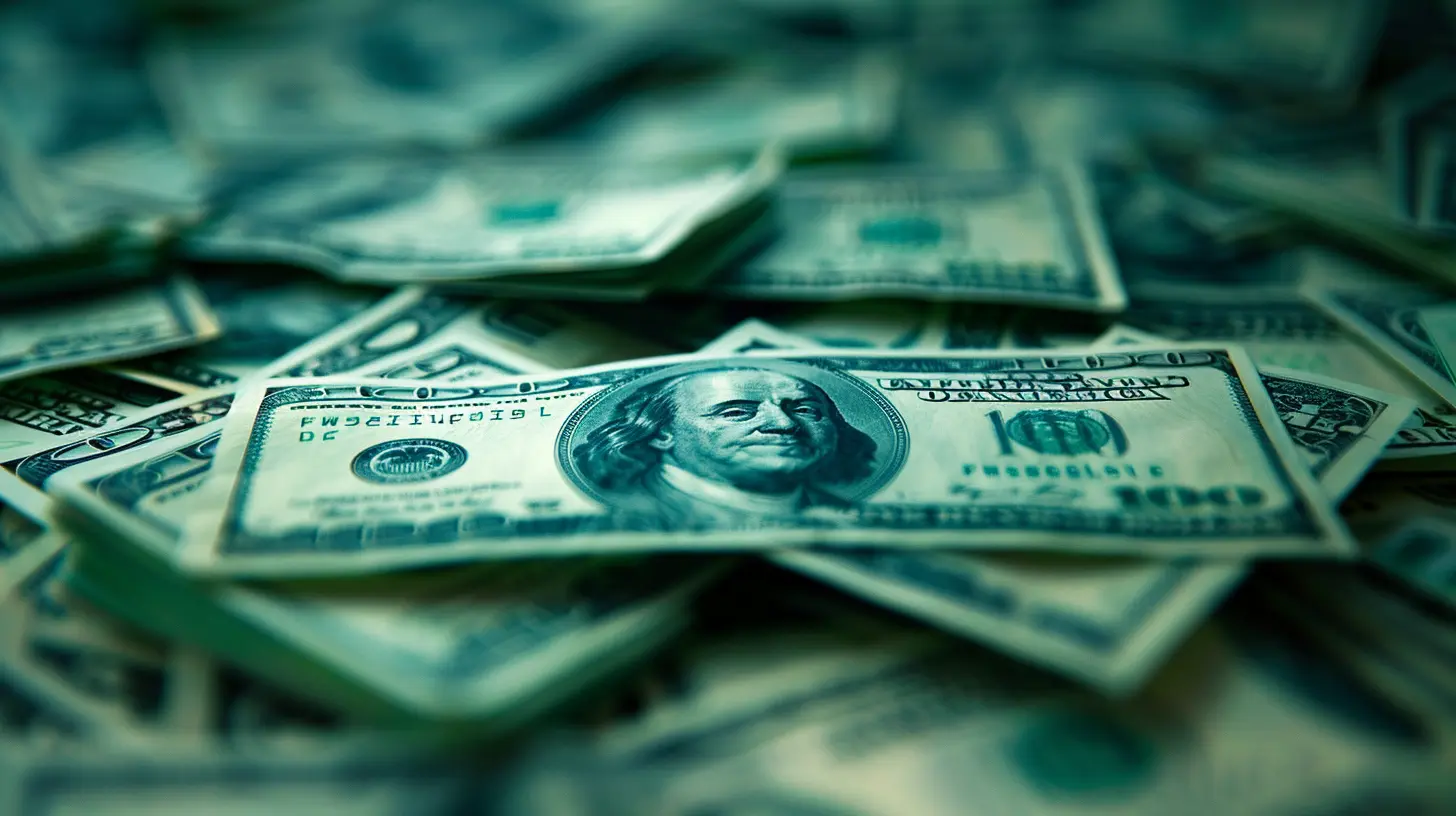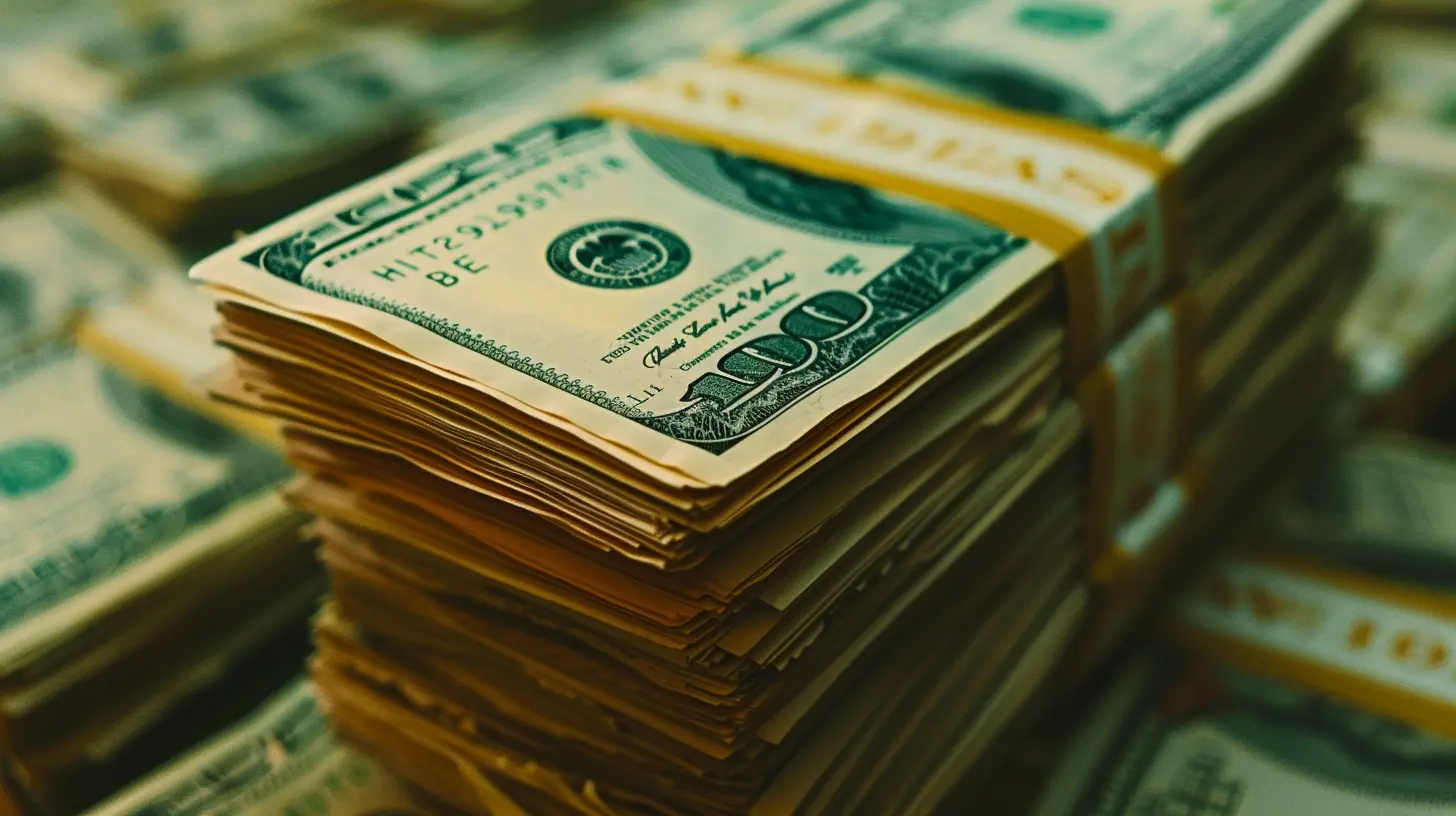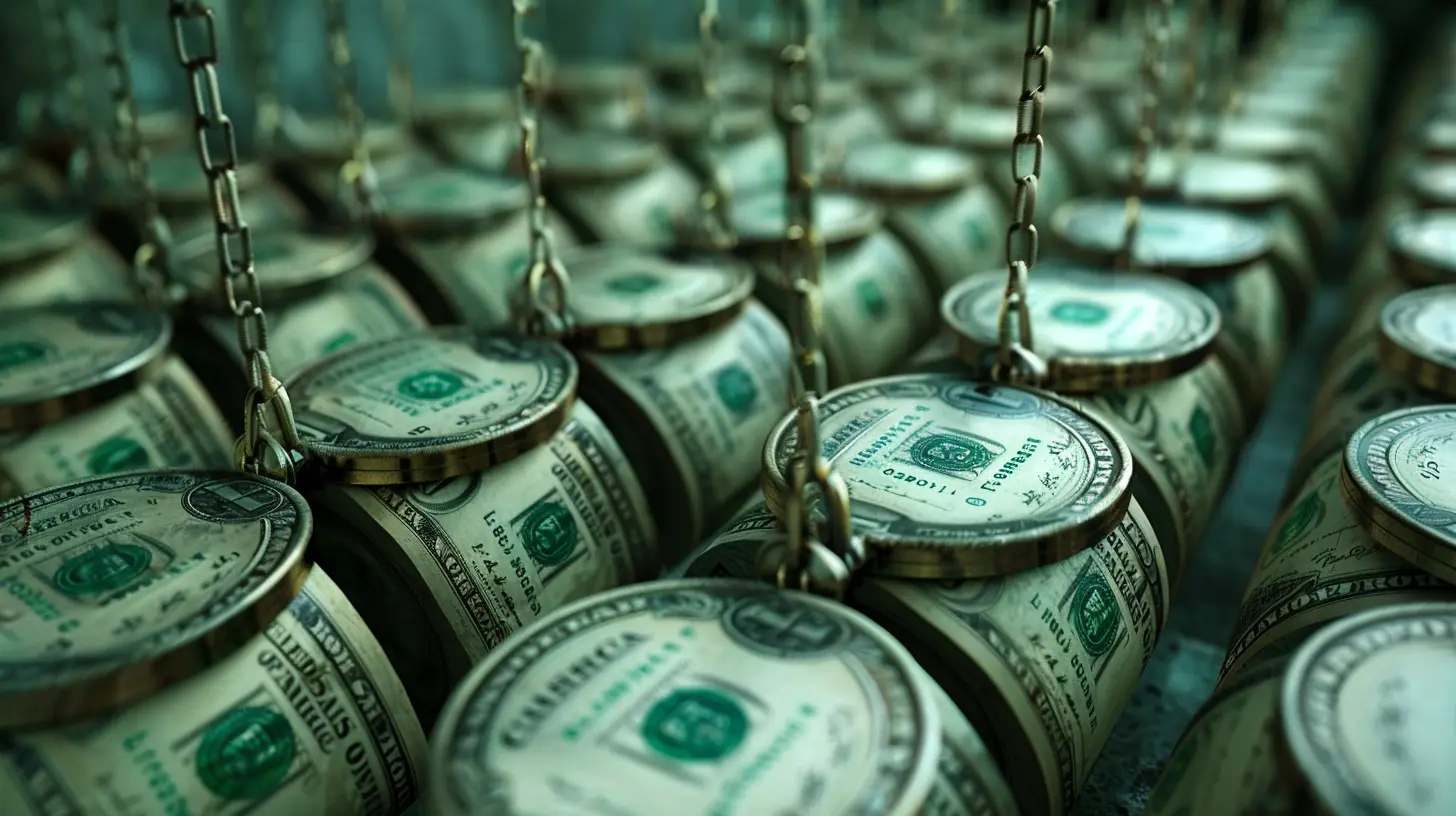The Importance of a Strong Cash Flow Reserve
21 October 2025
Let’s talk about something that sounds kind of boring but could actually save your financial behind when life hits the fan—cash flow reserves. I know, I know. “Cash flow reserve” doesn’t exactly scream excitement. But hear me out—this simple little concept could be the difference between thriving and barely surviving when unexpected expenses come knocking.
So grab a cup of coffee (or your beverage of choice), sit back, and let’s have a real talk about why stashing some extra cash away is like having a superhero cape in your financial wardrobe.
What Is a Cash Flow Reserve Anyway?
First things first—what is a cash flow reserve?In simple terms, it’s a pile of money you set aside to cover your butt when income slows down or surprise bills jump out of the bushes. Think of it as your financial safety net, emergency toolkit, or that friend who always has gum and a charger when you need one.
Whether you’re managing small business finances or your personal budget, having a cash flow reserve is basically financial peace of mind—something we could all use a little more of these days.
Why You Absolutely Need One (Like, Yesterday)
Let’s walk through the big reasons why a strong cash flow reserve isn’t just “nice to have” but an absolute necessity.1. Because Life Loves Curveballs
Surprise! Your car just coughed up its last breath. Or maybe your client “forgot” to pay their invoice on time (again). Life is full of curveballs, and when you’re not prepared, they can knock you flat.Having a reserve means you can dodge those hits like a financial ninja. You won’t have to max out your credit card or raid your kid’s piggy bank just to get by. You'll handle the stress with less panic and more power.
2. Stability in Unstable Times
Economic downturns? Yep, they happen. Uncertain markets, inflation, a sudden dip in business? That's the real world. Your cash reserve acts like your personal economic stimulus package—a cushion when income starts acting suspiciously shy.Imagine being able to say, “It’s cool, I’ve got this,” instead of spiraling into money stress. That’s the goal!
3. Sleep Better at Night (Seriously)
We all love sleep. But money anxiety? That’s the ultimate sleep thief. Having a well-stocked reserve means fewer 3 a.m. panic sessions about rent, payroll, or your next grocery run. Financial stability = mental peace. Who knew your bank account could be your therapist?
How Much Should Be In Your Reserve?
Great question. The short answer? It depends.The long answer? It still depends—but let’s break it down:
For Individuals
If you're managing your personal finances, aim for 3 to 6 months’ worth of living expenses. If your monthly bills round up to, say, $3,000, then a stash of $9,000 to $18,000 is a solid target.Why such a big range? Because everyone’s life is different. If your job is super secure and you’ve got other income streams, three months might do. If you're freelance, self-employed, or work in a volatile industry, shoot for six. When in doubt, more is better.
For Small Businesses
Now, if you’re running a business (you go, entrepreneur!), you’ll want 3 to 6 months of operating expenses—rent, payroll, utilities, monthly subscriptions, all that jazz.Your cash reserve is the parachute that keeps your business humming when payments are delayed, or sales take an unexpected dip.
Building Your Cash Flow Reserve From Scratch
You don’t need to magically produce thousands of dollars overnight (unless you’re a magician in which case, cool). Building a reserve takes time, consistency, and a few clever moves.1. Set a Realistic Goal
Don’t aim for the moon right away. Start small. Even $500 is a solid beginning. The key is consistency, not perfection.2. Make It Automatic
Out of sight, out of spend. Set up an automatic transfer into a savings account every payday, even if it’s just $50. You won’t even miss it. (Okay, maybe you will at first, but your future self will throw you a high five.)3. Cut Back—Just a Little
You don’t have to turn into a budgeting hermit. Just trim the fat where you can. Skip that daily fancy latte (ouch, I know), cancel subscriptions you never use, or cook at home more often. Funnel the savings into your reserve.4. Use Windfalls Wisely
Got a tax refund? Birthday cash? Some unexpected money raining down from the heavens? Put it into your reserve fund. It’s tempting to splurge, but consider it an investment in your stress-free future.Where Should You Keep This Magical Money?
Glad you asked!Your cash reserve should be:
- Accessible – Don’t lock it in a 5-year CD or tie it up in stocks. You’ll need this money fast and without penalties.
- Safe – This isn’t where you chase big returns. Think high-yield savings accounts or a good ol’ fashioned money market account.
- Separate – Keep it far away from your everyday checking account. You don’t want to be tempted every time you log in and see those juicy numbers.
When to Use (And Not Use) Your Reserve
Knowing when to dip into your reserve is just as important as having one.Good Reasons to Use It:
- Emergency car repairs- Job loss or income disruption
- Medical bills that insurance doesn’t cover
- Business cash flow gaps
- Unforeseen home repairs (like the time your ceiling started leaking out of nowhere)
Bad Reasons to Use It:
- Impulse shopping (those shoes WILL go on sale again)- Vacations (unless it's a mental health emergency… even then, maybe not)
- Buying the latest tech gadget because it's shiny
Your reserve is there to protect you in serious situations—not to fund your next Amazon spree.
Cash Flow Reserve vs. Emergency Fund: Are They the Same?
They’re like cousins—related, but not quite the same. An emergency fund typically refers to personal finances, meant for those "oh no" moments like losing a job or a medical emergency.A cash flow reserve often refers to business finances, ensuring consistent operations during slow revenue periods or delayed invoices.
But at the end of the day, both serve the purpose of keeping your financial ship afloat when stormy seas hit. Potato, potahto.
Real Talk: What Happens If You Don’t Have One?
Okay, let’s go dark for a second. What if you skip the whole reserve thing? What’s the worst that could happen?- You rely on credit cards and rack up high-interest debt
- You take out loans with awful terms
- You miss payments and hurt your credit score
- You stress out constantly
- Your business loses momentum—or worse, goes under
That’s not just inconvenient, it’s downright dangerous. A strong cash reserve helps you avoid financial quicksand. You might not need it today or tomorrow, but when you do… you’ll be glad you planned ahead.
Final Thoughts: Your Financial Safety Net (With a Side of Sanity)
Having a strong cash flow reserve is like carrying an umbrella—it may feel unnecessary during sunny days, but when the storm clouds gather, you’ll be the driest and happiest person on the street.It’s not about living in fear. It’s about living with freedom. The freedom to bounce back from unexpected expenses. The confidence to handle hiccups without spiraling. And honestly, the freedom to sleep better at night knowing you’ve got your own back.
So whether you’re just beginning your financial journey or you're a seasoned budget wizard, prioritize that cash reserve. Future you (and probably your entire household or business team) will thank you.
Now go out there and start building your safety net—because peace of mind is priceless.
all images in this post were generated using AI tools
Category:
Cash Flow ManagementAuthor:

Zavier Larsen
Discussion
rate this article
1 comments
Olympia McWilliams
Great insights! A strong cash flow reserve truly is essential for financial stability and peace of mind in uncertain times.
October 21, 2025 at 3:11 AM

Zavier Larsen
Thank you! I'm glad you found the insights valuable. A strong cash flow reserve is indeed vital for navigating uncertainties.


